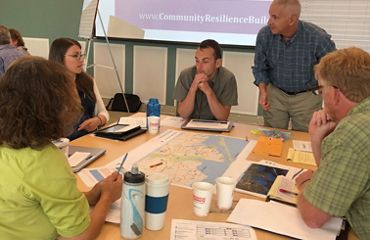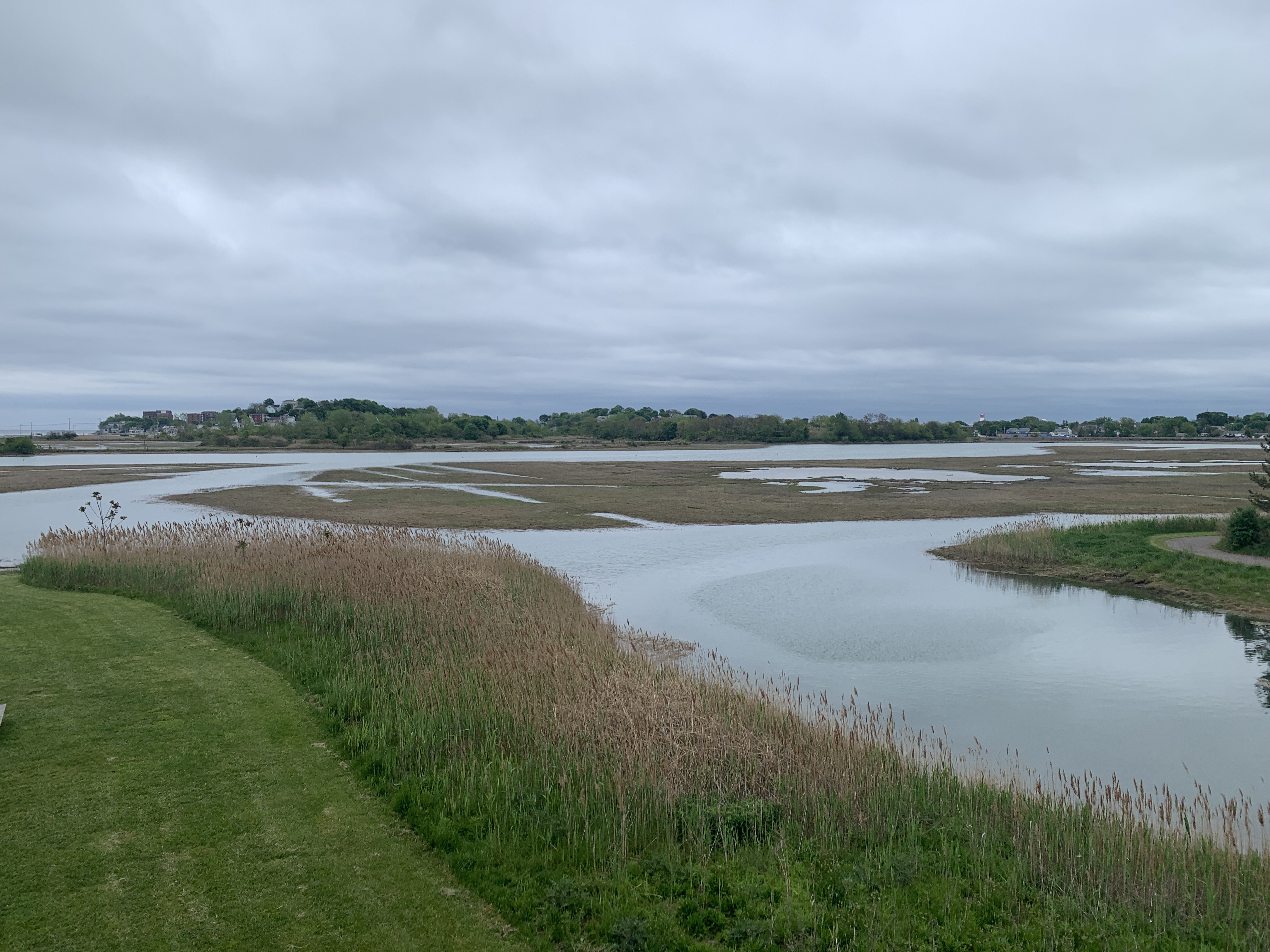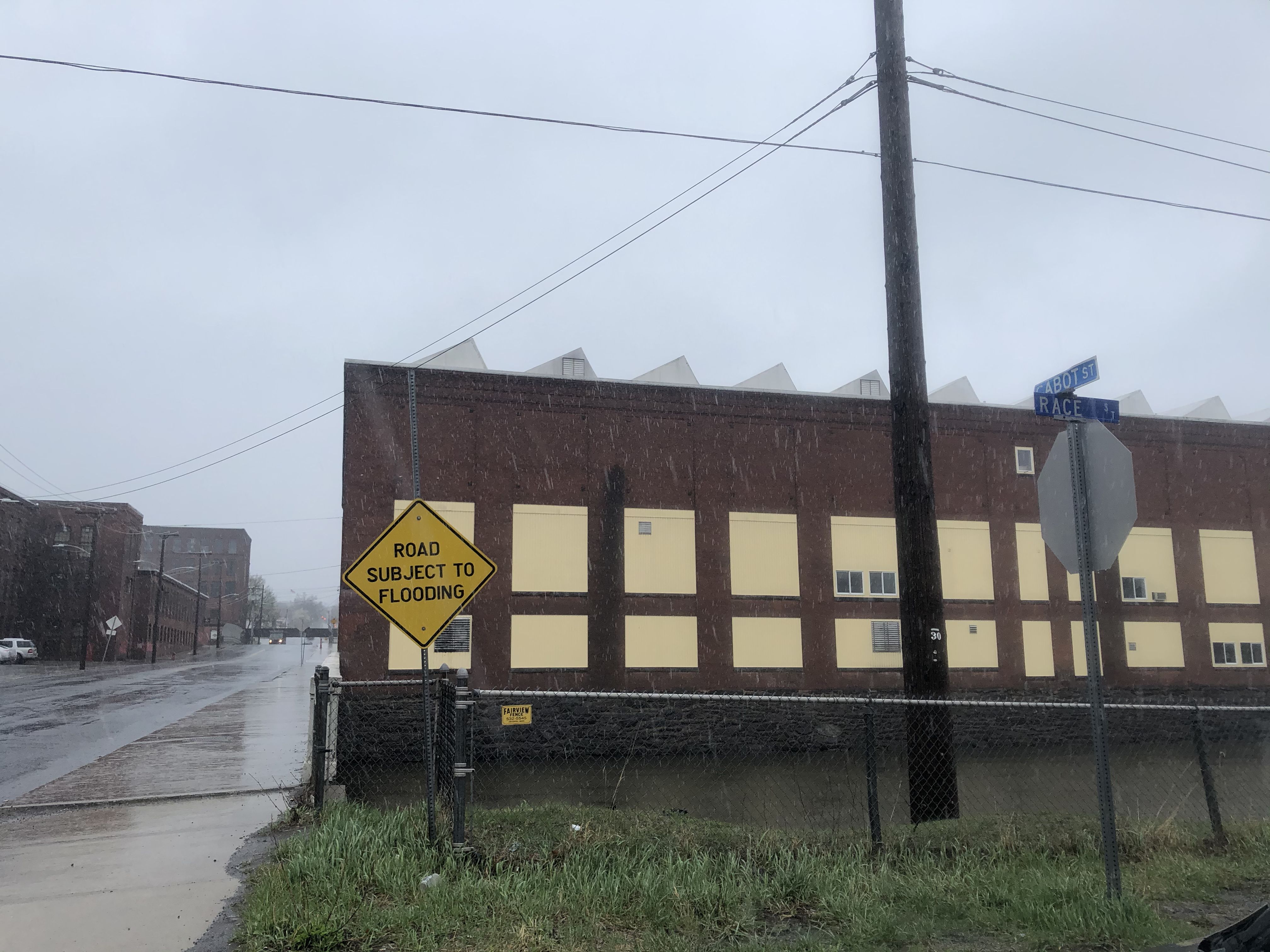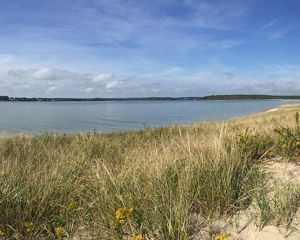Towns Take Action
Nearly all of Massachusetts' cities and towns are participating in the Municipal Vulnerability Preparedness program to respond to climate impacts.
As severe storms and environmental threats loom larger, communities across Massachusetts are taking charge of their future through the Municipal Vulnerability Preparedness (MVP) program—an initiative by the state Executive Office of Energy and Environmental Affairs (EEA) and local governments, launched in collaboration with The Nature Conservancy.
Nearly all of the 351 municipalities across the Commonwealth have taken action to address climate change impacts using the MVP Program since its launch in 2017. MVP provides planning grants to towns and cities so they can host community workshops to prioritize and plan their response to climate change impacts. The model is based on a Community Resilience Building framework developed by TNC and led by more than 700 TNC-trained certified service providers.
Quote: Emma Gildesgame
MVP brings together climate change impacts, the benefits of working with nature, and the importance of engaging with communities to the forefront of conversations about building resilience.

The workshops help communities understand current and future climate change impacts to natural hazards like flooding; identify their strengths and weaknesses across social, environmental and infrastructure sectors; and build an action plan to tackle those issues. Once communities complete the planning phases, they can apply for MVP action grants to implement the priorities identified in the planning process.
“Integrated with traditional hazard mitigation planning, MVP brings together climate change impacts, the benefits of working with nature and the importance of engaging with communities to the forefront of conversations about building resilience,” says Emma Gildesgame, climate adaptation scientist for TNC in Massachusetts.
Preparedness Progress
Thus far, EEA has awarded more than $130 million in MVP planning and action grants to communities across Massachusetts. $28.5 million of that was awarded to 79 action grant projects in fiscal year 2024 alone, the highest number of projects in any of the seven years of the program.
MVP prioritizes nature-based solutions—using natural systems to help reduce risks to lives and livelihoods—which also enhance safety, avoid costs and foster nature and social equity. For example in FY23:
- The City of Fitchburg identified, designed and implemented green infrastructure—like bioswales and tree planters—to reduce flooding and stormwater runoff in their downtown area, taking advantage of working in conjunction with an ongoing sewer separation project.
- Fall River, Tiverton and Westport partnered to design three stormwater treatment projects to protect South Watuppa Pond, reduce flooding and improve water quality through wetland restoration alternatives.
- In the town of Berlin, the community used their award to add 100 acres of undeveloped forest to the Mount Pisgah Conservation Area.

What are nature-based solutions?
A nature-based solution (NbS) uses nature or natural systems, on their own or in conjunction with traditional built infrastructure, to solve challenges like flooding, pollution, water quality, erosion and more. These solutions can range from rain gardens and bioswales, to wetland or coastal restoration, to managing an entire watershed for resilience. With NbS, we work with nature to help communities adapt to the climate challenges they're experiencing.
In the spring of 2023, EEA announced a second round of MVP planning, called MVP 2.0, which prioritizes enhanced engagement and voices from environmental justice communities to address the inequitable impacts of climate change. Building on the work that communities have undertaken so far, the revised process allows municipalities to revisit their resilience priorities with a focus on equity and building social resilience.
The 2.0 program is being piloted with 32 communities, including the Hassanamisco Nipmuc Band, through the end of fiscal year 2025. They received a total of $3 million in funding from the state and will also receive funding for a seed project. A second pilot round is already underway.
MVP and TNC
Learn more about a few of the projects on which TNC has worked with communities to support MVP planning and action
Furthering Community Resilience
In addition to supporting the program’s resilience building workshops, TNC in Massachusetts helped provide matching funds for three municipalities who pursued action grants from the program in 2020. The projects ranged from building flood resilience on the Island End River in Chelsea and Everett, to restoring wetlands in Easton, to mapping impervious surfaces in Holyoke to better manage stormwater.
TNC continues to work with partners in Chelsea on a suite of projects—including a shoreline park and removal of hydrologic barriers—which will restore flow and build resilience in Mill Creek. And nearby in East Boston, we’re working alongside the community and partners to assess, select and implement nature-based solutions to protect and adapt Belle Isle Marsh and the surrounding communities in the face of sea level rise and storm surge impacts. In addition to these projects, a number of TNC in Massachusetts' other climate adaptation projects in collaboration with communities, cities and towns have received some funding through the MVP program.
“TNC also continues to advocate for improving existing funding and establishing new sources of revenue to expand opportunities for long-term funding for MVP and state planning,” says Steve Long, director of policy and partnerships for TNC in Massachusetts. “We are also seeing other states adopt and consider similar resilience-building programs—Rhode Island launched a statewide Municipal Resilience Program in 2018 and we have consulted through the U.S. Climate Alliance with five other states.”

Sign Up for Our E-Newsletter
Get updates on initiatives like this and many others in a monthly email. Check out a sample Nature News email.





